Life
Sign up for our newsletter
We summarize the week's scientific breakthroughs every Thursday.
-
 Climate
ClimateTranquil ecosystems may explain wild swings in carbon dioxide stashing
Semiarid ecosystems, such as grasslands and shrublands, are behind the large variation in the amount of atmospheric carbon dioxide sucked in by land each year.
By Beth Mole -
 Genetics
GeneticsMutations that drive cancer lurk in healthy skin
Healthy tissue carries mutations that drive cancer, samples of normal skin cells show.
-
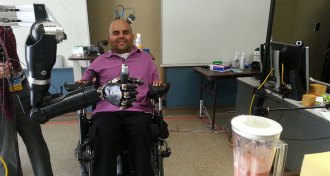 Neuroscience
NeuroscienceBrain implants let paralyzed man move robotic arm
Implanting tiny silicon chips in the action-planning part of a paralyzed man’s brain let him smoothly control a robotic limb with his thoughts.
By Meghan Rosen -
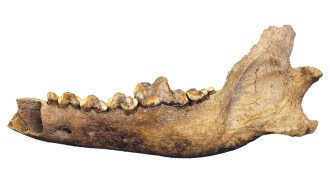 Genetics
GeneticsAncient DNA pushes back timing of the origin of dogs
DNA extracted from the fossil of an ancient wolf indicates dogs and wolves diverged longer ago than previously thought.
-
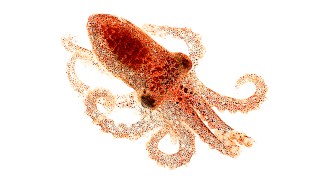 Animals
AnimalsOctopuses can ‘see’ with their skin
Eyes aren’t the only cephalopod body parts with light-catching molecules.
By Susan Milius -
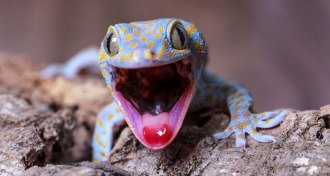 Animals
AnimalsRising temperatures may cause problems for cold-blooded critters
Ectotherms cannot easily handle extreme temperatures, a new study finds.
-
 Paleontology
PaleontologySuds versus nanoparticles and more reader feedback
Readers discuss the posture of an ancient reptile and why washing machines and nanoparticles don't mix.
-
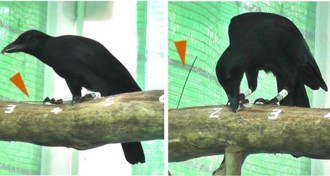 Animals
AnimalsCrows safeguard sticks to speed future food-finding forays
New Caledonian crows safeguard the sticks they use to find food. As the risk of losing the tool increases, the more protective the birds become.
-
 Animals
AnimalsPandas’ gut bacteria resemble carnivores’
Unlike other vegetarians, the bamboo eaters lack plant-digesting microbes.
By Meghan Rosen -
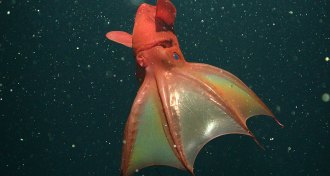 Animals
AnimalsVampire squid take mommy breaks
The vampire squid again defies its sensationalist name with a life in the slow lane.
By Susan Milius -
 Life
LifeTypical American diet can damage immune system
The typical American diet sends our good and bad gut microbes out of balance and can lead to inflammation and a host of problems.
By Laura Beil -
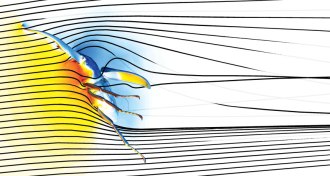 Life
LifeMale stag beetles face weighty problem for flight
Male stag beetles need enormous mandibles to fend off other males and find a mate, but computer simulations show that the giant jaws make running and flying very difficult.
By Susan Milius